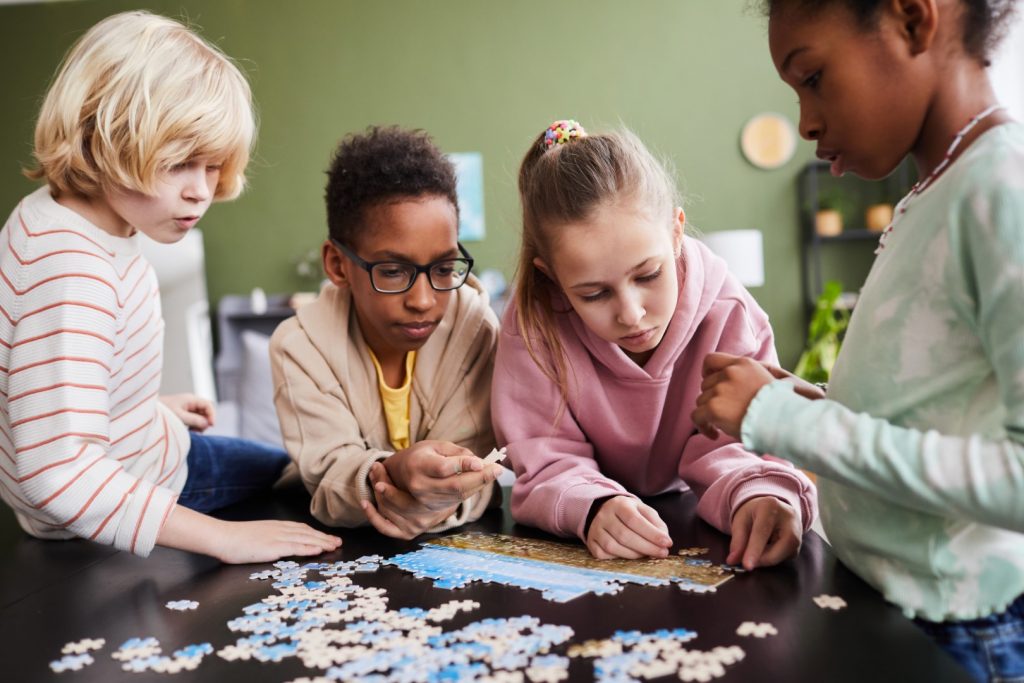8 Ways Ravensburger Puzzles Can Help Your Kid’s Development
Puzzles have become a part of a kid’s life in this modern time. Even with the advent of technology, it hasn’t failed to be present in many learning activities at home and school. For many, it has become more than a pastime but a vital component of early childhood development.
As early as the 18th century, people used puzzles. Initially, it was used by mapmakers, but when educators saw its potential, it became a part of children’s recreational boxes.
From the first dissected wood geographical puzzles, the fascination for it gave birth to several other types and kinds. And today, you can see many jigsaw puzzles in various sizes and numbers of pieces. Kids can begin solving a few and move on to more challenging ones as they become successful with the easier puzzles.
Today, makers of puzzles like Ravensburger have found a way to make it more exciting and engaging for kids by adding their favorite characters from movies or TV shows they watch. Ravensburger puzzle’s are a great way to teach kids many essential things. Here are some of the ways it can help with child development:
1. Develop Fine Motor Skills
A child as young as three can begin working on easy puzzles. This game is great for teaching kids to grasp and learn how to use their hands and fingers properly. Initially, young kids’ grasp can be clumsy, and they might struggle. In this early phase, it’s essential to allow them to learn how to use their muscles by practicing through puzzles.
2. Shape Recognition
Identifying shapes is crucial in forming a child’s understanding of their world. It’s one of the early steps of improving their mathematical knowledge and is fundamental in learning a language. Before a child can read, they must be able to identify shapes since shapes can be associated with letters.
3. Improve Hand-Eye Coordination
Hand-eye coordination is crucial in developing the brain’s abilities. It’s the primary step in strengthening the brain’s functions. A child’s ability to connect what their hand performs as they see it happen sends signals to their brain that this is how it’s done. As your child pushes those pieces that match together, their brain will understand how the movements made it successful. Thus, it’s a vital cognitive development that will train their brain to identify precision and coordination
4. Enhance Concentration And Attention Span
In this digital age, children’s attention span keeps on getting shorter. Today, a four-year-old’s attention span is only about 8-12 minutes. It could be a potential issue once they begin school and might not be able to focus on the discussed topic.
Kids can boost their focus and patience if allowed to work on a puzzle uninterrupted. It’s why giving them age-appropriate puzzles is crucial so they can finish the puzzle at the recommended time without giving up.
5. Improve Social Skills
Working with other kids to complete a puzzle is an excellent way to improve their social skills. It would be an opportunity for them to make friends and give them the chance to understand the value of teamwork while learning to manage their frustrations.
Typical of kids, they could be possessive with things. Snatching pieces away from others might occur, and this can be an opportunity for them to learn the value of communication and solving disagreements with the help of an adult.
6. Harness Problem Solving Skills
Some of the things a child can learn from puzzles are organization, strategy, identification, and sorting. These are all crucial in solving the problem in front of them. And if consistently done, it could help harness their problem-solving abilities in much-complicated models and situations.
Kids can learn to strategize with puzzles. It also teaches them to manage their priorities and break down tasks into smaller pieces. Ultimately, as young as three years old, a child can develop their decision-making capabilities with puzzles.
7. Enhance Self Esteem
Celebrating a victory upon completing a puzzle allows a child to have a moment of triumph. This winning moment boosts their self-esteem and makes them feel like they can conquer anything. This sense of accomplishment is vital in developing their confidence.
As they grow, they can become more independent and not reliant on others for help. It’s also why, as a parent or an educator, it’s essential to give positive reinforcement to kids once they complete a puzzle. It further boosts their confidence and enhances their self-worth.
8. Sharpens Memory
Recalling pieces that go together and remembering the image of the completed puzzle will build a child’s memory which is crucial in developing brain connections. Memory is necessary for thinking and learning a vast number of ideas. It’s indispensable in learning language, mathematics, and other essential cognitive abilities like planning, following directions, and solving problems.
Conclusion
Many parents would want their kids to grow up to be successful adults. But this doesn’t happen like magic. You can’t just wish for it to take place instantly. Learning doesn’t happen overnight; for children to become accomplished adults, learning should begin while they’re young. Working on puzzles during their early years will be a great start.




